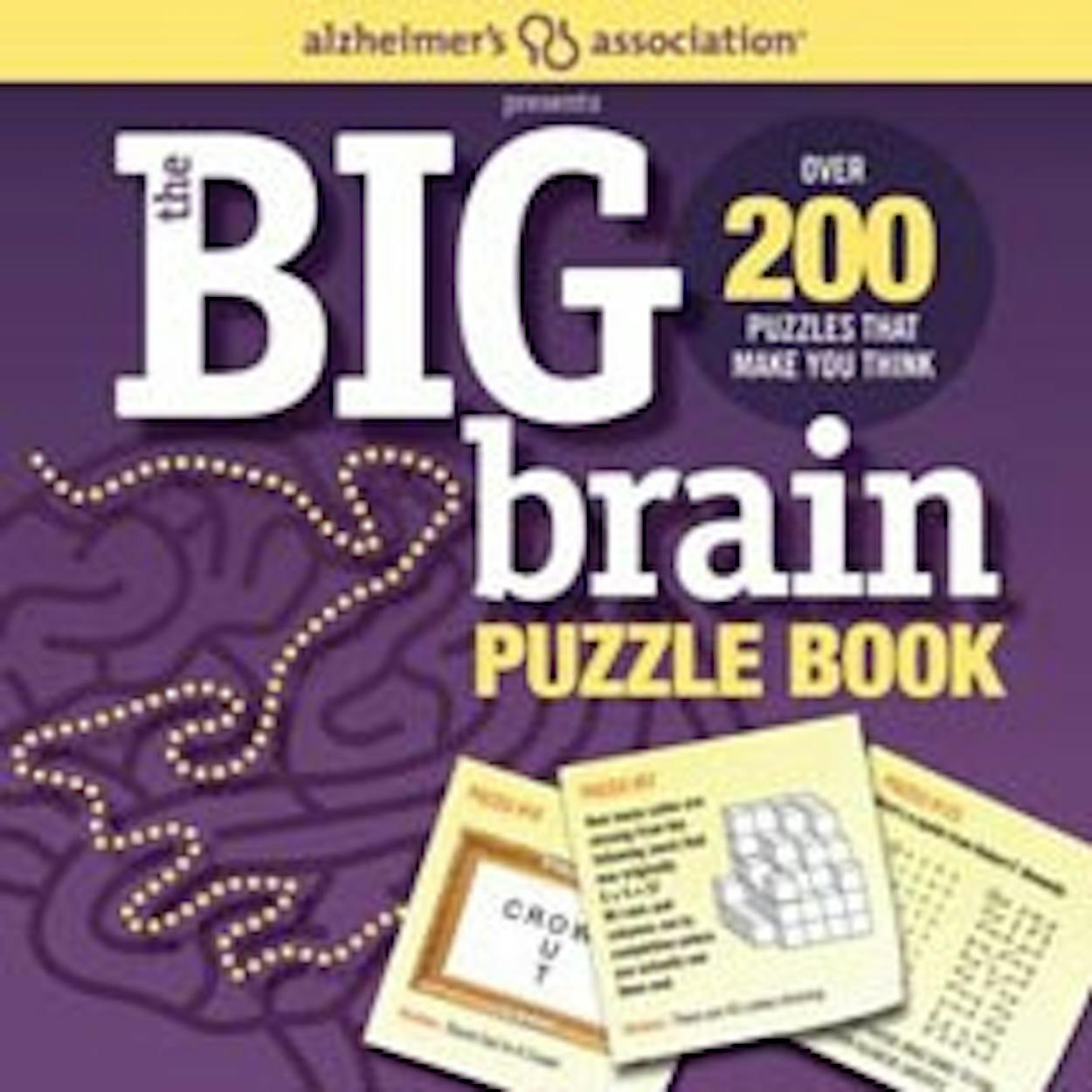Terry Stickels has enjoyed creating puzzles since he was a young boy living in Nebraska. One day when he was eleven, his Little League baseball game was canceled due to rain. He and his buddy were looking for something to fill the time, so his friend’s mother handed them a puzzle. And then another. He was hooked. “When we were solving them, we looked at each other and thought, ‘We could do better puzzles,’” explains Stickels, who lives in Fort Worth. “Years later, I had all these puzzles that I created.” Now, he’s combining his love of puzzles with spreading awareness of Alzheimer’s disease—the most common form of dementia—in his new book, The Big Brain Puzzle Book (Time Inc.).
Stickels grew up in the same house as his grandmother, who was diagnosed with Alzheimer’s disease when he was twelve years old. He saw how quickly the disease progressed and how devastating it could be. “My mother was thoroughly convinced my grandmother could have been healthier longer had she stayed very active mentally,” Stickels says. “I took that lesson very seriously.” Neuroscientists believe puzzles and games prevent certain stages of age-related dementia by keeping the mind active. By next year, Alzheimer’s disease is expected to affect more than 35 million people worldwide—and the statistic is estimated to nearly double every twenty years to 115 million people in the year 2050. “I read statistics on dementia every week and think, ‘How can a disease spread so quickly?’” he says.
Stickels designs his puzzles to be fun and challenging—just as his readers enjoy them. He receives e-mails from senior citizens in their eighties and nineties who attribute their excellent mental health to completing his works. “There’s no downside to it. The experience is good from beginning to end. If you don’t like one [puzzle], you can move to another,” he says. “And if you can’t get the answer, you can look in the back.”
Obviously, Stickels hit on something. He started out writing a column at a small newspaper in Rochester, New York. Now he’s internationally syndicated. He writes Stickelers [sic], which appears in more than two hundred newspapers daily, including the Washington Post, the Chicago Sun-Times, the Denver Post, and the Toronto Star. He also writes for London’s largest newspaper, The Guardian. “If I can make someone’s life happier one day, then I’ve done my job,” he says. “You don’t ever plan to be a full-time puzzle writer. But that’s the story.”
His Frame Games column appears in USA Weekend, which is read by more than 48 million people in six hundred newspapers each week. His puzzles have appeared on the back of Kellogg’s Raisin Bran Cereal boxes, and he wrote the questions for one of the most famous IQ quizzes in Internet history: A Beautiful Mind. In addition to planning keynote speeches on creative thinking and mental flexibility, he has authored fifteen yearly calendars and about thirty books for children and adults. Although he loves all puzzles, he enjoys mathematics and spatial visual puzzles because of their challenge. He encourages Americans, especially teachers, to pay as much attention to mathematical puzzles as they do word puzzles. “There’s no easy road to work on these,” he says. “They speak for themselves—no cultural background or specific academic training needed.”
In 2002 Stickels moved from New York to Fort Worth so that his son would have a better opportunity to play professional baseball. Although his three children now live elsewhere, Stickels has no desire to move away from a place where he can wear shorts outside in November. A self-described twelve-year-old at heart, he finds humor in everyday life and still keeps up with baseball strategies. “There’s very little room for error—what pitches to throw, which runners on bases, and the position of your outfielders,” he says. “All that pressure is in the moment. You have to think of what’s happening in the future.”
Stickels encourages people to keep their minds active by engaging in challenging puzzles and games as early as the minute they can understand them—even with an activity as simple as a word search. “I don’t see myself as some guru or genius. I write puzzles for me because they please me,” he says. “And I will until the day I drop.”







